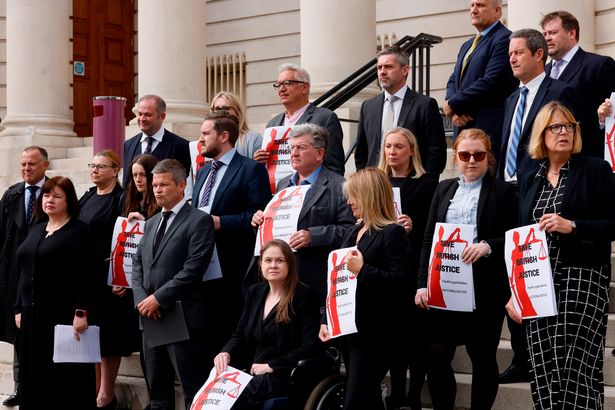Proposals to expand legal aid eligibility are a substantial step in the right direction, the Law Society of England and Wales said, with criminal lawyers in Wales stating the move is a ‘welcome relief’.
Sir Christopher Bellamy’s Independent Review of Criminal Legal Aid proposed changes were launched by UK government on the 15 March. The wide-ranging reforms are aimed to make the legal aid system ‘fit for 21st century’ and the recommendations include:
- an extra £135 million spent on legal aid every year, following independent review of fees
- offering ‘millions more’ people access to legal aid as part of proposed reforms to the means test
An extra £135 million will be spent on the sector every year to match the recommendation made by an independent review of the system, overseen by Sir Christopher Bellamy QC. When added to the extra £200 million each year to speed up the courts system, it will bring total taxpayer funding for criminal defence to £1.2 billion a year.
Mark Davies, Chair of the Law Society Wales Committee and criminal solicitor at Goldstones Solicitors in South Wales said:
“The proposed changes are a welcome relief…After decades of decline and as a criminal solicitor myself, it’s a welcome relief to see the UK Government commit to increase legal aid rates by the 15% that Sir Christopher Bellamy recommended – including for magistrates’ court and police station work.”
“The Wales Office of the Law Society has been instrumental in helping achieve the first substantial cash injection into criminal legal aid for over 25 years and this money is a welcome first step in repairing the beleaguered criminal justice system and ensure timely access to justice for both victims and defendants.”
In May 2021, the Wales Office of The Law Society hosted Sir Christopher Bellamy in Wales for two days as he undertook information gathering visits that ultimately informed the recommendations contained in his Independent Review of Criminal Legal Aid.
Davies explained:
“As part of this three day visit The Law Society Wales Office ensured that Sir Christopher had a clear and direct view of the issues surrounding criminal legal aid in Wales by taking him to the custody units in Ystrad Mynach and Cardiff Bay, organising for him to meet with a delegation of members both in Cardiff and in Wrexham, and I personally took Sir Christopher on a tour of the Swansea area, over the course of a whole day, whilst setting out the severe difficulties posed by a period of non-investment stretching back to the 1990’s.
“25 years of real terms cuts have seen the number of criminal legal aid firms almost halved since 2007 and we know that this has directly led to newly qualified solicitors seeking to work in areas away from criminal practice. This has resulted in an increased scarcity of duty solicitors in many parts of Wales.”
Law Society of England and Wales president I. Stephanie Boyce said:
“We have long highlighted that many who cannot afford a solicitor – including poverty-hit families – have fallen through the justice gap as they have not been eligible for legal aid because of the ungenerous means test.
“We therefore welcome the proposed changes as a substantial step in the right direction. They should result in legal aid being available to more of the people who so desperately need it when faced with legal issues ranging from domestic abuse to homelessness to being accused of a crime.
Davies was pleased that a majority of the issues Law Society members raised with Sir Christopher in Wales appear to have directly informed his report and recommendations. He said:
“The work of the Wales Office of The Law Society can sometimes go unseen by members and I hope that this announcement from UK Government today demonstrates just one element of the work that The Law Society Wales Office undertakes on members behalf every day.”
The Law Society of England and Wales said that it will continue to examine the proposals in detail ‘and plan to repeat our research with Professor Donald Hirsch of Loughborough University to ensure the changes do increase eligibility to receive legal aid for those who most need it’.









